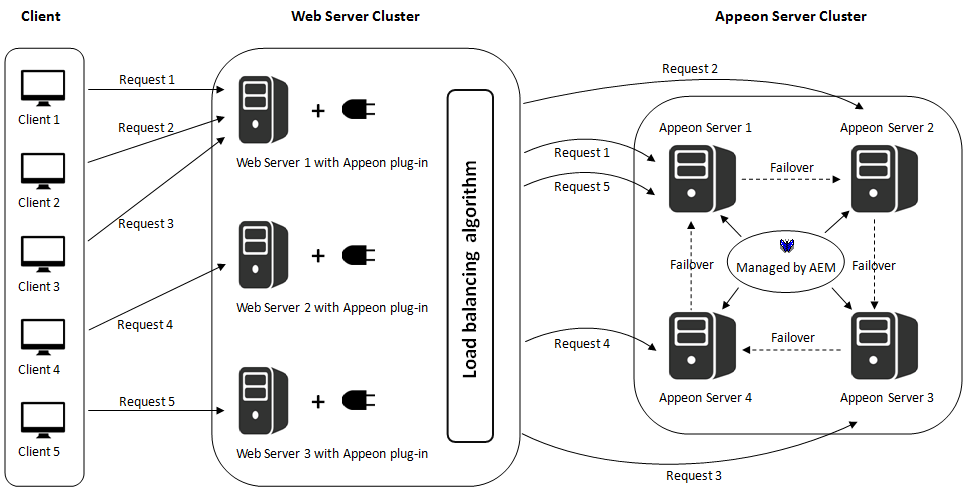The following graphic illustrates the architecture of the client, the Web server cluster, and the Appeon Server cluster.
-
The Web server can be a cluster of Web servers or a single Web server, depending on the demands. Configuring the Web server cluster is not an Appeon task, therefore, it is not mentioned in any Appeon documentation; to explore this topic, you could refer to the user documents provided by the Web server vendor. Generally, a single Web server is sufficient to support the Appeon Server cluster.
-
Appeon cluster plug-in is installed to the Web server (either a single Web server or a cluster of Web servers), for distributing the user requests to the Appeon Server according to the specified load balancing settings and the failover settings.
-
If there is only one Web server, it can be on an independent machine separated from the Appeon Server, or it can be on the same machine where Appeon Server resides. If it is on the same machine with Appeon Server, make sure the Appeon Server and the Web server are set up on different Web sites.
-
There are two load balancing algorithms: random and sequence. The following graphic uses sequence which distributes the user requests to the Appeon Server in sequential order.



